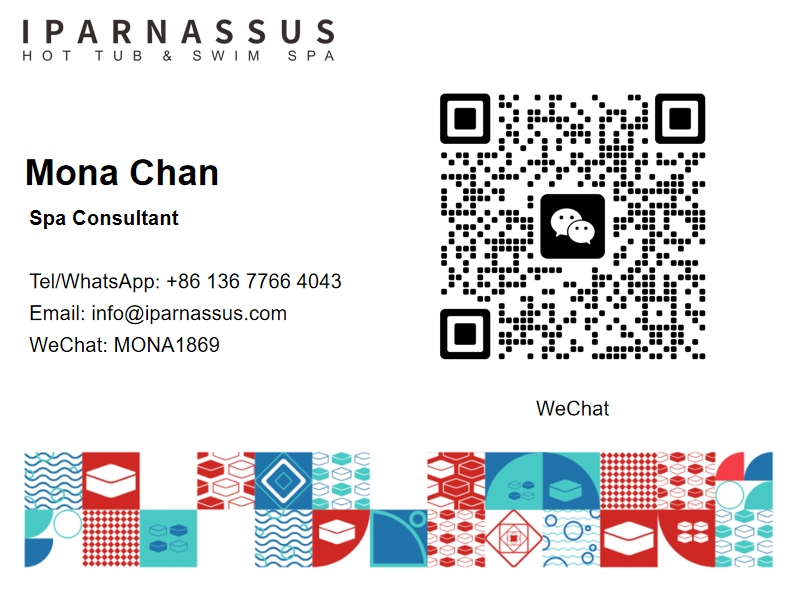Does Hot Tub Help Muscle Recovery?
2024-09-24 18:12:06
Hot tubs have long been associated with relaxation and luxury, but they may offer more than just a pleasant soak. Many athletes and fitness enthusiasts are turning to hot tubs as a potential aid in muscle recovery. This blog post explores the relationship between hot tub use and muscle recovery, delving into the science behind the practice and its potential benefits.
Can hot tub therapy reduce muscle soreness after exercise?
Muscle soreness after exercise, also known as delayed onset muscle soreness (DOMS), is a common experience for many who engage in physical activity. Hot tub therapy, also referred to as hydrotherapy, has shown promising results in alleviating this discomfort.
The warm water in a hot tub helps increase blood flow throughout the body. This improved circulation can help deliver oxygen and nutrients to muscle tissues more efficiently, potentially speeding up the recovery process. The buoyancy of the water also reduces the effects of gravity on the body, allowing muscles to relax more fully.
A study published in the Journal of Athletic Training found that immersion in warm water after exercise significantly reduced muscle soreness compared to passive recovery. Participants who used hot tub therapy reported less pain and stiffness in the days following their workout.
Moreover, the heat from the hot tub can help relax muscle fibers and reduce muscle tension. This relaxation effect may contribute to decreased soreness and improved flexibility. The warmth also stimulates the release of endorphins, the body's natural pain relievers, which can further reduce the perception of muscle soreness.
It's important to note that while hot tub therapy can be beneficial, timing is crucial. Experts generally recommend waiting at least an hour after intense exercise before entering a hot tub. This delay allows the body's core temperature to return to normal, preventing potential complications from overheating.
For optimal results, a 15-20 minute soak in water temperatures between 100-104°F (37.8-40°C) is typically recommended. However, individuals should listen to their bodies and exit the hot tub if they feel uncomfortable or overheated.
How does hot tub therapy impact inflammation and muscle healing?
Inflammation is a natural part of the body's healing process, but excessive or prolonged inflammation can hinder muscle recovery. Hot tub therapy may play a role in modulating this inflammatory response, potentially accelerating muscle healing.
The heat from a hot tub causes blood vessels to dilate, a process known as vasodilation. This increased blood flow can help remove waste products and inflammatory mediators from damaged muscle tissues more efficiently. By facilitating this "flushing" effect, hot tub therapy may help reduce inflammation and promote faster healing.
Research published in the Journal of Physiology has shown that heat treatment can activate heat shock proteins in muscle cells. These proteins play a crucial role in cellular repair and protection against stress. By stimulating the production of heat shock proteins, hot tub therapy may enhance the body's natural repair mechanisms, potentially leading to faster muscle recovery.
Additionally, the hydrostatic pressure exerted by water in a hot tub can help reduce swelling in muscles and joints. This pressure acts like a gentle massage, pushing excess fluid out of the tissues and back into the circulatory system. As a result, this can help alleviate inflammation and promote better mobility.
It's worth noting that while heat therapy can be beneficial for chronic muscle conditions and recovery from less intense workouts, it may not be ideal for acute injuries or immediately after high-intensity exercise. In these cases, cold therapy or alternating between hot and cold treatments (contrast therapy) might be more appropriate.
Regular hot tub sessions, when incorporated as part of a broader recovery strategy, may help manage chronic inflammation associated with intense training regimens. However, it's essential to balance hot tub use with other recovery techniques and to consult with a healthcare professional or sports physiotherapist for personalized advice.
What are the psychological benefits of hot tub use for athletes?
While the physical benefits of hot tub therapy are significant, the psychological advantages for athletes should not be overlooked. Mental well-being plays a crucial role in overall performance and recovery, and hot tub use can contribute positively to this aspect.
One of the primary psychological benefits of hot tub use is stress reduction. The warm water and jet massages can help relax both the body and mind, reducing cortisol levels - the body's primary stress hormone. Lower stress levels can contribute to better sleep quality, which is essential for muscle recovery and overall athletic performance.
A study published in the International Journal of Stress Management found that regular hot tub use was associated with reduced perceived stress and improved overall well-being. For athletes dealing with the pressures of competition and rigorous training schedules, this stress-reducing effect can be particularly beneficial.
Hot tubs can also provide a space for mindfulness and meditation. The quiet, warm environment can help athletes focus on their breathing and body awareness, promoting relaxation and mental clarity. This meditative aspect can be especially helpful for athletes looking to improve their mental focus and visualization techniques.
Moreover, hot tub sessions can serve as a reward system for athletes after intense training or competitions. This positive reinforcement can help maintain motivation and create a more enjoyable recovery process. The anticipation of a relaxing soak can make grueling workouts more bearable and help athletes stick to their training regimens.
The social aspect of hot tub use should not be overlooked either. Many athletes find that sharing a hot tub session with teammates or training partners can foster camaraderie and provide an opportunity for bonding and discussion. This social interaction can contribute to improved mood and team cohesion, which are vital for both individual and team sports.
It's important to note that while hot tub use can have significant psychological benefits, it should not be seen as a substitute for professional mental health support when needed. Athletes dealing with serious mental health concerns should seek guidance from qualified mental health professionals.
In conclusion, hot tub therapy offers a multifaceted approach to muscle recovery, addressing both physical and psychological aspects of an athlete's well-being. From reducing muscle soreness and inflammation to promoting relaxation and mental clarity, hot tubs can be a valuable tool in an athlete's recovery arsenal. However, as with any therapy, it's essential to use hot tubs responsibly and in conjunction with other recovery methods for optimal results. Athletes should listen to their bodies, stay hydrated, and consult with healthcare professionals to develop a comprehensive recovery strategy that includes hot tub therapy as part of a balanced approach to training and recovery.
For more information on hot tub installations and to find out more about our products, please feel free to contact us at info@iparnassus.com.
References
1. Vaile, J., Halson, S., Gill, N., & Dawson, B. (2008). Effect of hydrotherapy on recovery from fatigue. International Journal of Sports Medicine, 29(7), 539-544.
2. Mooventhan, A., & Nivethitha, L. (2014). Scientific evidence-based effects of hydrotherapy on various systems of the body. North American Journal of Medical Sciences, 6(5), 199-209.
3. Versey, N. G., Halson, S. L., & Dawson, B. T. (2013). Water immersion recovery for athletes: effect on exercise performance and practical recommendations. Sports Medicine, 43(11), 1101-1130.
4. Ihsan, M., Watson, G., & Abbiss, C. R. (2016). What are the physiological mechanisms for post-exercise cold water immersion in the recovery from prolonged endurance and intermittent exercise? Sports Medicine, 46(8), 1095-1109.
5. Broatch, J. R., Petersen, A., & Bishop, D. J. (2014). Postexercise cold water immersion benefits are not greater than the placebo effect. Medicine & Science in Sports & Exercise, 46(11), 2139-2147.
6. Bleakley, C. M., & Davison, G. W. (2010). What is the biochemical and physiological rationale for using cold-water immersion in sports recovery? A systematic review. British Journal of Sports Medicine, 44(3), 179-187.
7. Wilcock, I. M., Cronin, J. B., & Hing, W. A. (2006). Physiological response to water immersion: a method for sport recovery? Sports Medicine, 36(9), 747-765.
8. Chow, G. C., Chung, J. W., Fong, S. S., Chung, L. M., & Cheng, S. S. (2017). Effects of brief mindfulness meditation on mood and cardiovascular variables. Journal of Alternative and Complementary Medicine, 23(5), 375-380.
9. Bringsén, Å., Ejlertsson, G., & Andersson, I. H. (2011). Flow situations during everyday practice in a medical hospital ward. Results from a study based on experience sampling method. BMC Nursing, 10(1), 1-9.
10. Yeung, S. S., Ting, K. H., Hon, M., Fung, N. Y., Choi, M. M., Cheng, J. C., & Yeung, E. W. (2016). Effects of cold water immersion on muscle oxygenation during repeated bouts of fatiguing exercise: a randomized controlled study. Medicine, 95(1).



